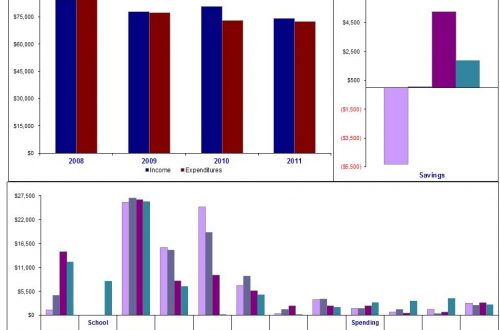
Let’s Talk About Emergency Funds (part 2)
This is a continuation of the post began on Wednesday about the importance of Emergency funds, and how much you need to have in one.
But what about those who say you should have 3-6 months worth of living expenses set aside?
This is an emergency fund for people who are further along in their financial journey. They are not living paycheck to paycheck, and their debt is low interest and easily manageable. And the 3-6 months living expenses is on the theory that if you lose your job, you will have plenty of time to find a new one.
This is not a bad idea, but this forgets that in most cases, if you lose your job, you will get unemployment. (Obviously not if you are fired for cause, but if you are behaving in such a way as to get fired for cause, then you know it, and losing your job is not an unexpected/unplanned expense.) And in some cases, you will also get severance.
I have been here. I was the sole earner in our family and I was laid off at the start of May. However, because it was a layoff, I qualified for unemployment AND I got a severance package of 6 months pay and a full year of COBRA’d health insurance. This meant while I was unemployed, I was actually making more money than I had while working. I was unemployed for 2 months. I started a new job in July, and then for 4 months, I got my new salary and my severance. It was beautiful.
What was not beautiful was that 6 months into my new job, my supervisor and I mutually decided this position had not been the right fit. And so, we agreed to end my employment. I still qualified for unemployment. This time, I was unemployed for 9 months.
Unemployment did not (and does not) replace your entire income. But it was enough to pay our mortgage and base bills. And we cut back, but we still continued to cash flow my husband’s college education. We spent 11 months of an 18 month period, with no one in the family working, and we barely changed our lifestyle because we had money saved. But I can tell you that we could have survived those 11 months just fine between unemployment and 3 months worth of expenses saved.
But if you are in a volatile industry, or think a re-org or a buy out might be coming an your place of employment, it is not a bad idea to have enough money to pay your rent or mortgage for a couple of months set aside. (To be honest, we had the money in savings. It was not supposed to be our emergency fund. It was meant to be our house down payment fund. But in an actual emergency, all funds are emergency funds.)
And this brings us to
the last point, the notion that in a true emergency, it does not really matter how
much you have saved, it will not be enough.
In a sense, we went through this twice in just the space of a few years.
There was the long period of my unemployment back in 2014, and then starting in
2016, we ended up in a family legal issue. That issue is now financially
resolved, but over the 2.5 years it was really going on (because legal issues
take a long time), we ended up with around $120,000 in unplanned for expenses.
(Well, unplanned for in June 2016.) And the majority of those hit right at the
start. I would say that over half of that money was spent in the first 6 months,
and that we had spent $100k by the end of the first year. We had one hit of
$16,000 dollars that had to be paid in a single lump sum.
And honestly, we did have close to 6 months of living expenses set aside
(though again, not necessarily in an emergency fund ) and that certainly helped
us weather the initial onslaught. But that was “only” $20,000. $100,000 unplanned
for expenses in a single year, when your household income is less than $100,000
for the year, is not something you can ever plan for. And I would never
recommend that someone have $100,000 just sitting around and not working for them.
And while in our case, this was a legal issue, the same type of catastrophic expenses
could hit with medical issues or natural disasters.
So if your emergency
fund will never be enough in the case of true emergency, does it really matter
if you have one?
Yes. Yes it does. Having $20,000 in liquid savings got us through the
initial legal expenses, to a point where we could adjust our budget and start
planning around them. But that was not what really mattered. What really
mattered was the experience we had gained in getting to a point where we could
have an emergency fund of $20,000. We had learned over the years to track our expenses,
to budget, to save. We knew how to cut expenses when we needed to.
The skills we gained in our journey out of debt and getting to a point where
needing to replace the washer and dryer at the same time was not really an
emergency, because our credit was good enough that we could buy them with 0%
financing, were what really got us through our emergency. I wrote very little during
our legal emergency because I did not have the energy to write. But I wrote a
few posts back during the long period of unemployment, about surviving 9
months (eventually 11) of unemployment on 6 months of severance and even spending $10k
in 6 weeks, while unemployed. And my take away then, as now, is that it was
not the money that saved us.
Money is important. Let me be very clear. Especially in a legal situation, our
overall experience and outcome would have been much, much worse if we had not
been able to spend what we did on experienced counsel. Spending less money then
would have left us in a demonstrably worse place now. But the money was not our
true emergency fund.
Learning not just how to handle our money, but how to communicate about money
was the key. If you are going through this life with a partner, your greatest
emergency fund is the ability to have the difficult conversations.


